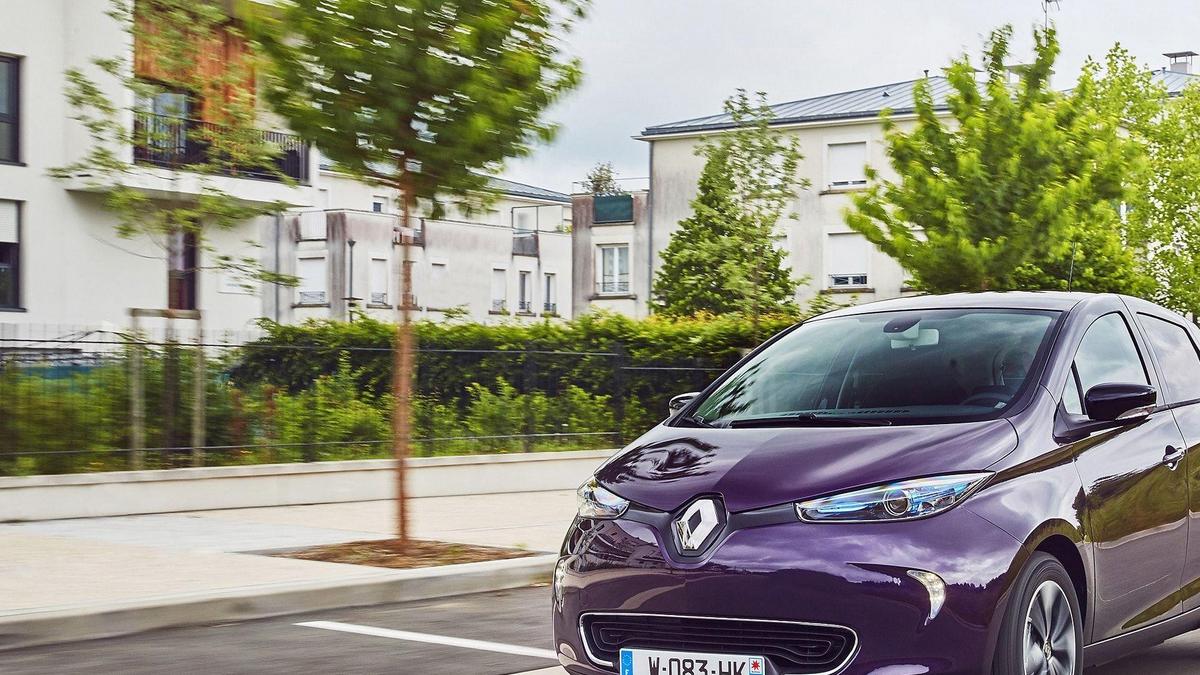Companies news
Renault unveils three autonomous EVs
Paris: On the sprawling Paris-Saclay urban campus, a hatchback cab suddenly slows down on spotting a cyclist ahead. Not overtaking or honking, the electric car just trails the cyclist on the two-lane road. That’s when a safety driver, who hasn’t touched the wheel till now, steers the vehicle for an easy way out.
It looks exactly like Renault Zoe, which is yet to be launched in India, except that this car is autonomous, being equipped with GPS-type sensors, light detection & ranging (Lidar), cameras, inertial units and self-driving software.. ..
Zoe is one of the three prototype autonomous vehicles unveiled by French automaker Groupe Renault at the Viva Tech show in Paris recently, and is being tested on the Paris-Saclay campus — home to over 80,000 people — for safety and acceptability of autonomous driving & mobility (SAM). SAM experiments are part of France’s autonomous vehicle development strategy, including building a regulatory framework. The other two prototypes unveiled are EZ-FLEX, a compact vehicle for last-mile urban deliveries, and EZ-POD, a two-seater robotised automated platform to provide last-mile connectivity.
Groupe Renault CEO Thierry Bolloré said, “Alongside cities, startups, outstanding partners and public authorities, we see our leadership as a key part of a new history, the history of electric, connected, autonomous and shared mobility serving the public at large.”
As part of Renault’s strategy aimed at offering autonomous mobility services by 2022, it has launched the Paris-Saclay Autonomous Lab project along with the Transdev Group, IRT SystemX, VEDECOM and the University of Paris-Saclay with support from the French government, to devise and test “smart, autonomous, electric and shared public & private mobility services”.
Under the project, three Zoe cars provide on-demand service based on a mobile app from pickup points. To ensure safety of passengers as well as others on the road, the services are tracked online by an operating control centre, which can directly contact passengers if needed. The centre is also linked to connected infrastructure and customer apps.
The cabs provide full autonomy in specified areas. But in hilly areas, navigation may pose a problem if there’s a network issue during bad weather conditions. The vehicles have interior cameras and screens besides a safety driver as French government rule mandates presence of a safety driver during the testing.
According to Renault, the project will gradually introduce user panels to record user views and expectations (service quality, mobile app usability, in-vehicle comfort, etc.)
At the moment, the experiments seem smooth because of the location, as key infrastructure, such as traffic signals and landmarks, are linked. But to take the vehicle elsewhere, a similar infrastructure will have to be replicated. For, autonomous mobility is not just about the vehicle per se, but more importantly about the environment and infrastructure around.
The vehicles can hit the roads when internet penetrates everywhere and everything. Also, they may work very safe only when all vehicles are autonomous or they have dedicated lanes. Else it would need just a human driver to wreck the whole system with one sudden left or right turn from nowhere.
On India plans, Venkatram Mamillapalle, CEO & MD, Renault India operations, said, “While we have showcased our intentions and actions towards future mobility on a global scale, we have a strong innovation story in India as well…We will be launching an all new car for India this year — Renault Triber, which is another testament to our focus on innovation. Renault Triber is a new car that’s been designed and developed for India. It will bridge the gap between Kwid and our SUV offerings in India. With a unique body-style that cannot be classified into a simple category, Renault Triber will offer best-in-class space with first-of-its-kind modularity. We will continue on our innovation journey in India, to develop products that shape the future of India’s automobile transformation.”
SMART SHUTTLE AT NIGHT
Under Paris-Saclay Autonomous Lab experiment, Transdev Group, a public transport mobility group, is operating i-Cristal autonomous electric shuttle developed in partnership with the Lohr Group. Initially, the shuttle which can accommodate 16 passengers, operates between 12.30 am and 3 am, covering nearly 6 km in both directions between Massy station and Saclay Plateau.
The writer was in Paris at the invitation of Renault
Source : The Times Of India













